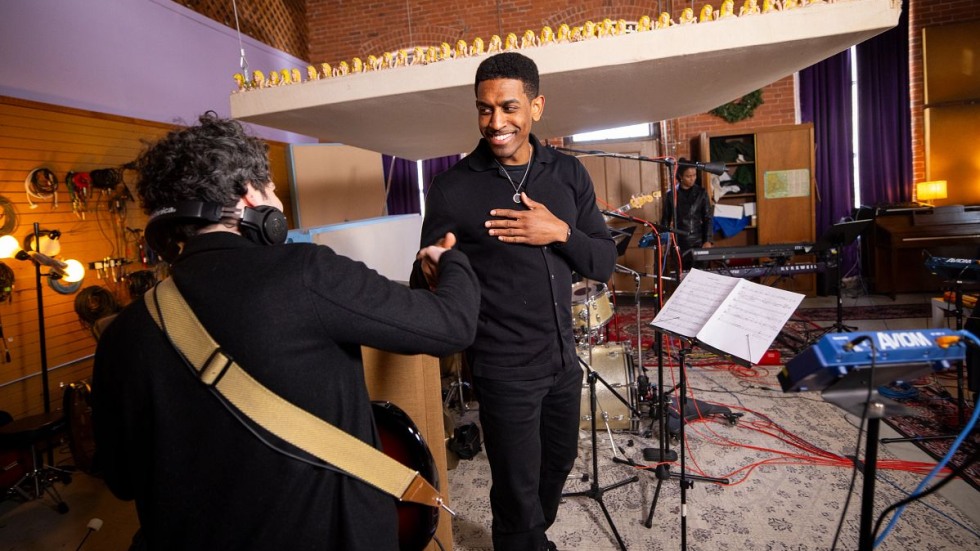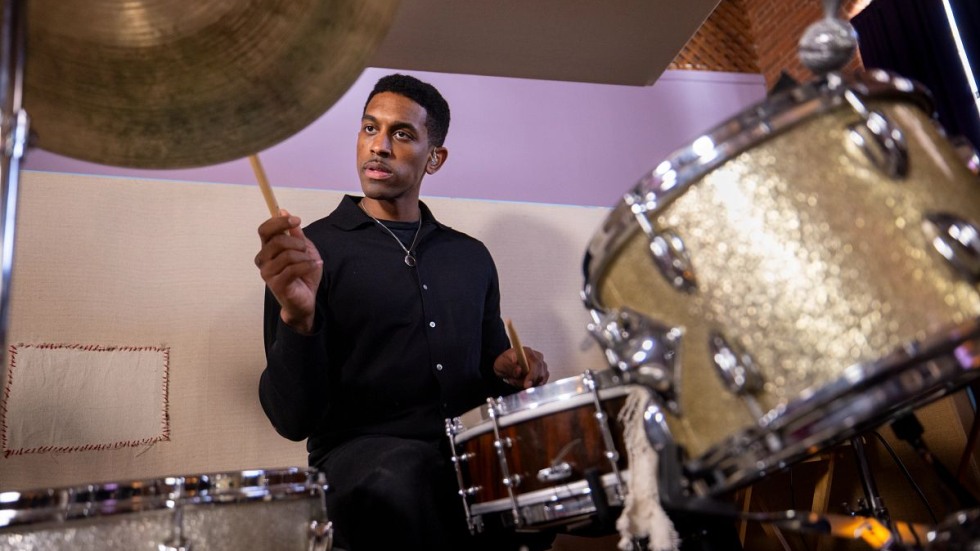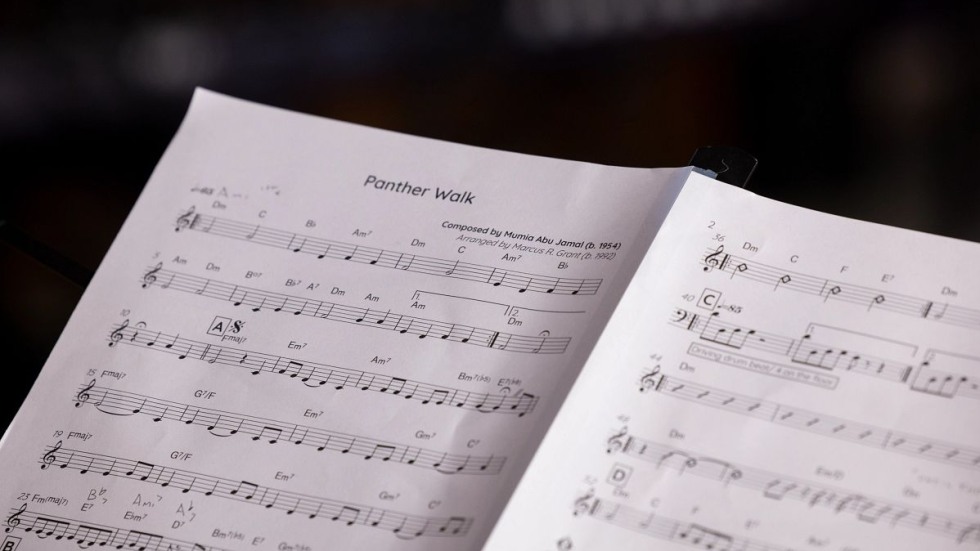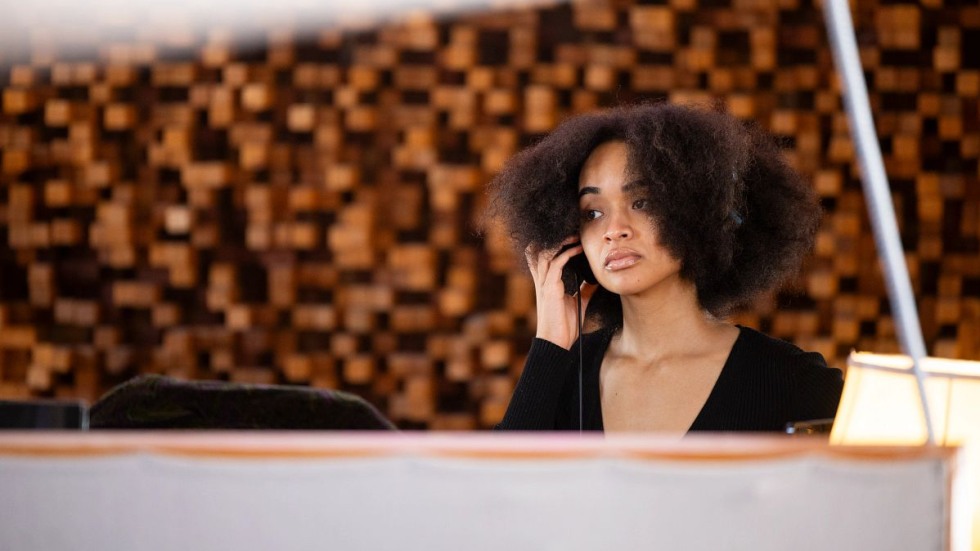PROVIDENCE, R.I. [Brown University] — In a 2012 essay, Mumia Abu-Jamal — a journalist and political activist serving a life sentence in prison for a murder conviction — wrote, “When we consider art and incarceration; this originally sounds like an oxymoron; a stunning incongruity. But, in fact, these drab, colorless human storage boxes are bursting with art.”
That essay inspired Melaine Ferdinand-King, a doctoral candidate in Brown University’s Department of Africana Studies, as she curated the exhibition “Art and the Freedom Struggle: The Works of Mumia Abu-Jamal.” On view at Brown’s Ruth J. Simmons Center for the Study of Slavery and Justice through July, it serves as a creative companion to the biographical “Mumia Abu-Jamal: A Portrait of Mass Incarceration” exhibit currently on display at Brown’s John Hay Library.
Abu-Jamal, who has been incarcerated in Pennsylvania for more than 40 years, much of that time on death row, is a writer, musician, scholar, journalist, painter and activist. Convicted of murdering a police officer in 1982, his case has stirred fierce national debates about racial injustice and the ethics of the death penalty, and legions of activists have maintained his innocence.
The works on display at the Simmons Center draw on Abu-Jamal’s vast personal archive, acquired by Brown’s John Hay Library and Pembroke Center in 2022 to advance research on incarceration, and include paintings, poems, commentary and musical compositions. Many were completed while he was in solitary confinement.
“I wanted to focus on Mumia’s interior life and the expression of consciousness that he had behind bars,” said Ferdinand-King, who was part of the acquisitions team who surveyed Abu-Jamal’s papers in 2021 and 2022 through the Black Feminist Theory Project of the Pembroke Center at Brown.
The exhibition includes the first recording of Abu-Jamal’s composition “Panther Walk,” arranged by Brown graduate student Marcus Grant, who is focusing his studies on Black protest music. Grant also arranged Abu-Jamal’s “Vampire Nation,” which saw its premiere performance at the University’s Fall 2023 Voices of Mass Incarceration Symposium, and a recording of that performance is now part of the Simmons Center exhibition.



